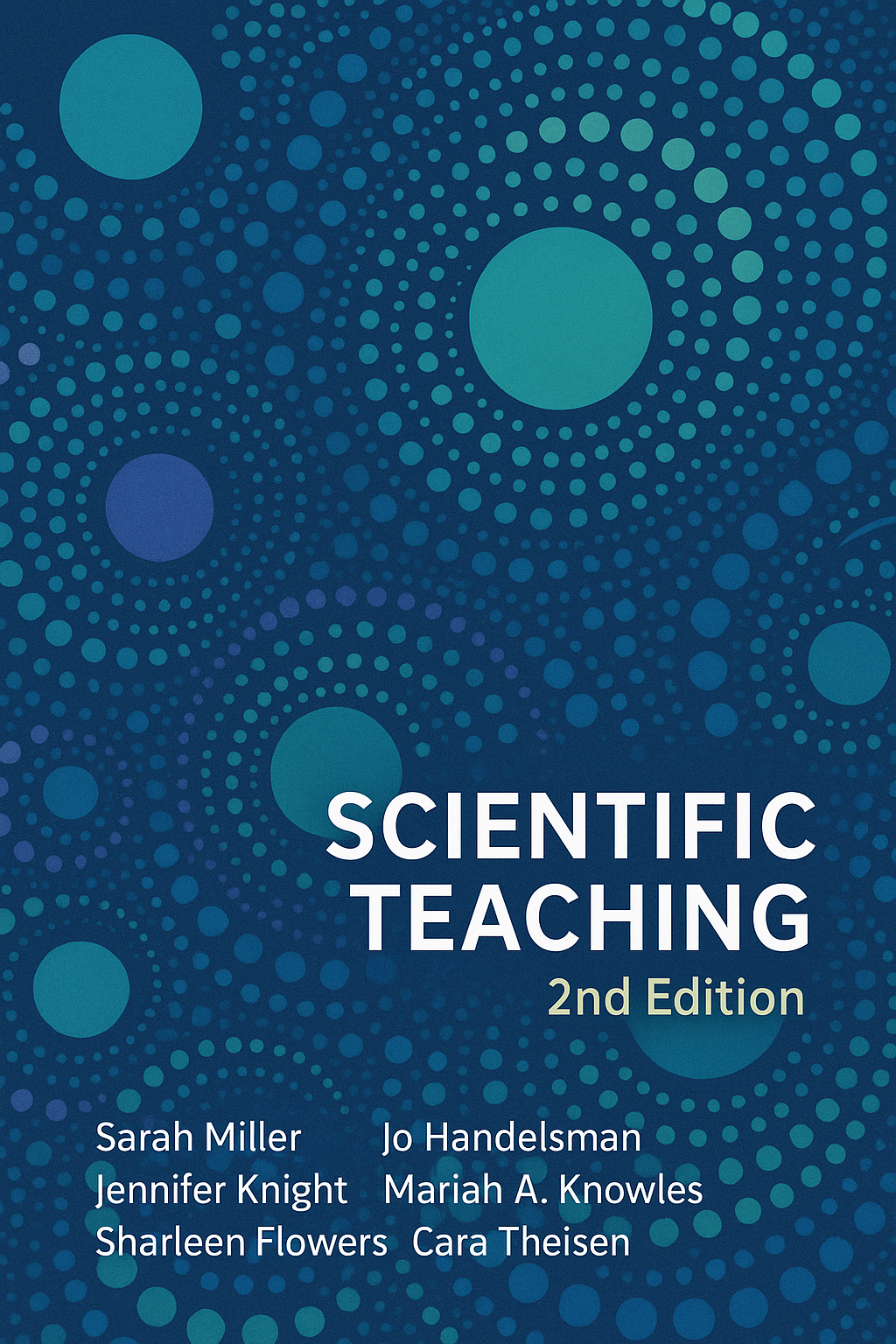Scientific Teaching Course
Authors
Sarah Miller (University of Wisconsin-Madison), Jo Handelsman, (University of Wisconsin–Madison), Jennifer Knight (University of Colorado at Boulder), Sharleen Flowers (University of Colorado at Boulder), Mariah A. Knowles (University of Wisconsin–Madison), Cara Theisen, University of Wisconsin–Madison
Contributing authors:
Cara Gormally (Gallaudet University), Zakiya Kennedy (Louisiana State University), Taziah Kenney (Rowan College and Jefferson University), Christine Pfund (University of Wisconsin-Madison), Rebecca M. Price (University of Washington), Rou-Jia Sung (Carleton College), Sheela Vemu (Waubonsee Community College), Michelle D. Withers (Binghamton University)
***
The first edition of Scientific Teaching was revolutionary and many of its recommended practices have stood the test of time, but new interventions and research findings have blossomed (in fields such as education research, social science, education psychology, online and hybrid learning, discipline-based education research). This course has done again what scientific teaching does best: it has synthesized the current state of knowledge while providing practical guidance, examples, and tools. Drawing on new learning principles, this course is an interactive, self-guided resource that models the best and time-tested scientific teaching practices.
Themes and Features
This professional development course for STEM educators distills key findings from education, discipline-based education research, and the cognitive learning sciences and translates them into digestible research points and practical classroom examples.
The recommendations have been tested and refined over the past 20+ years by the National Institute on Scientific Teaching. The program started in 2004 at the University of Madison—Wisconsin as the Summer Institute on Scientific Teaching but quickly spawned different formats, including Mobile Summer Institutes and Regional Summer Institutes. Over 2,000 instructors have participated in 56 Institutes at over 350 colleges and universities.
The simple imperative embedded in the scientific teaching approach is to “bring to teaching the critical thinking, rigor, creativity, and spirit of experimentation that defines research (Handelsman et al., 2004).”
Contents
Module 1: Scientific Teaching
Module 2: Inclusive Learning
Module 3: How Learning Works
Module 4: Course Design
Module 5: Active Learning Experiences
Module 6: Summative Assessment
Module 7: Course Structure
Module 8: Scientific Teaching Revisited
Module 9: Institutional Transformation
“The authors’ premise is a simple one: scientists who teach should approach instruction as they approach their research, by reading relevant literature, experimenting with new approaches, and measuring the student learning that results. ”






